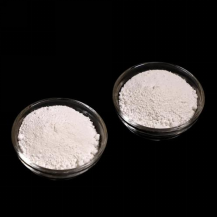
Dec . 03, 2024 19:44 Back to list
Key Manufacturers in the Titanium Dioxide Industry and Their Impact on the Market
The Role of General Titanium Dioxide Factories in Modern Manufacturing
Titanium dioxide, often abbreviated as TiO2, is one of the most important white pigments used in a variety of industries. It is renowned for its high refractive index and exceptional brightness, making it a preferred choice in industries such as paint, plastics, cosmetics, and food. General titanium dioxide factories play a crucial role in the production process, providing the necessary materials that meet the growing demands of these diverse markets.
The Production Process
The main production methods for titanium dioxide include the sulfate process and the chloride process. The sulfate process, one of the oldest methods, involves the reaction of titanium-containing ores with sulfuric acid. This method produces a high-quality product but can generate significant waste and is often more expensive than the alternative. The chloride process, however, is gaining popularity as it produces a purer form of titanium dioxide and results in less waste. In this method, titanium ores are reacted with chlorine at high temperatures, yielding titanium tetrachloride, which is then oxidized to form TiO2.
General titanium dioxide factories implement advanced technologies to optimize these processes, ensuring high efficiency and lower environmental impact. The investment in modern equipment and sustainable practices allows these facilities to produce titanium dioxide that meets stringent quality standards and regulations.
Importance in Industries
The applications of titanium dioxide are vast and varied. In the paint industry, it is used as a pigment due to its excellent opacity and UV resistance. Manufacturers rely on it to create bright, durable coatings that can withstand extreme weather conditions. In plastics, titanium dioxide improves color strength and provides protection from UV rays, which is essential for outdoor applications.
In the cosmetics industry, TiO2 is commonly found in products such as sunscreens and foundations. It acts as an effective UV filter, helping to protect the skin from harmful rays while also providing a smooth texture. Additionally, its non-toxic nature makes it a safe choice for personal care products.
The food sector also utilizes titanium dioxide as a food additive, where its role primarily involves enhancing the whiteness and brightness of products. However, the use of TiO2 in food products has raised discussions regarding safety, leading to increased scrutiny and regulation.
general titanium dioxide factories

Environmental Concerns
While titanium dioxide has a wide range of applications, its production raises environmental concerns. The processes to extract and refine titanium can lead to significant waste and pollution. General titanium dioxide factories are increasingly focusing on sustainability initiatives to mitigate these effects. This includes reducing wastewater, recycling production materials, and using renewable energy sources.
Moreover, the industry is actively engaged in research to develop more sustainable production methods. Innovations such as bioleaching, where microbes are used to extract metals from ores, hold promise for creating a more ecologically friendly method of producing titanium dioxide.
Economic Impact
The titanium dioxide industry has a substantial economic impact globally. As a vital component of several manufacturing processes, the demand for TiO2 continues to rise, driven by the growth in construction, automotive, and consumer goods markets. General titanium dioxide factories contribute significantly to job creation and economic growth in their regions, fostering local communities and industries.
Furthermore, the ongoing globalization of trade means that these factories not only serve domestic markets but also export their products globally. This highlights the interconnectedness of the economy with the role of titanium dioxide, making it an essential commodity in the global marketplace.
Conclusion
General titanium dioxide factories are at the heart of an industry that serves multiple sectors with a vital raw material. Despite the environmental challenges posed by its production, advancements in technology and a commitment to sustainability are paving the way for a greener future. As industries continue to innovate and evolve, the importance and application of titanium dioxide are set to grow, ensuring that these factories remain fundamental to modern manufacturing.
-
Premium 6618 Titanium Dioxide for GPT-4 Turbo Applications
NewsJul.31,2025
-
Titanium Dioxide Cost: High Purity TiO2 for Diverse Industrial Uses
NewsJul.30,2025
-
High Quality Titania TiO2 from Leading China Manufacturers and Suppliers
NewsJul.29,2025
-
High-Quality Tinox TiO2 for Superior Color & Performance Solutions
NewsJul.29,2025
-
High Quality Titania TiO2 from Leading China Supplier & Manufacturer
NewsJul.29,2025
-
High-Performance r6618 TiO2 for Superior Whitening and Versatility
NewsJul.28,2025
